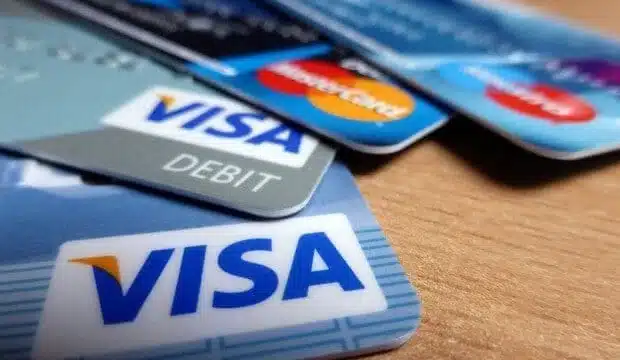Credit cards are ubiquitous tools for managing personal finances. They provide a convenient way to make purchases, build credit, and earn rewards. However, with so many credit cards available, it can be overwhelming to decide which one is right for you. In this article, we will discuss which credit card is actually the best choice for you and some key factors in choosing the right credit card. We’ll also offer some suggestions on which card might be the best fit for different types of users.
In the meantime, below are some factors to consider in which credit card is right for you.
#1. Consider Your Spending Habits
One of the most important factors to consider when choosing the right credit card is your spending habits. Do you spend a lot of money on travel, groceries, or dining out? Do you make large purchases on a regular basis? Different credit cards offer rewards and benefits that cater to different types of spending. For example, some cards offer higher rewards on travel or dining expenses, while others offer cashback on everyday purchases. Consider your spending habits and choose a card that offers rewards on the purchases you make most often.
#2. Check the Annual Fee
Some credit cards come with an annual fee. While these cards may offer more generous rewards and benefits, it is important to weigh the cost of the annual fee against the value of the rewards. If you plan to use the card frequently and earn enough rewards to offset the annual fee, then it may be worth it to choose a card with an annual fee. However, if you don’t plan to use the card very often, or if the rewards don’t outweigh the cost of the fee, then a card with no annual fee may be a better choice.
#3. Look at the Interest Rate
The interest rate on a credit card is an important factor to consider, especially if you plan to carry a balance from month to month. Credit cards with high-interest rates can quickly accumulate interest charges and make it difficult to pay off the balance. Look for a card with a low-interest rate or a 0% introductory APR period if you plan to carry a balance.
#4. Consider Your Credit Score
Your credit score is a key factor that lenders consider when deciding whether to approve you for a credit card. If you have a high credit score, you may qualify for cards with lower interest rates and more generous rewards. However, if you have a lower credit score, you may need to start with a card that is designed for users with less-than-perfect credit. These cards may have higher interest rates and fewer rewards, but they can help you build your credit score over time.
#5. Choose a Card with Benefits You’ll Use
Finally, consider the benefits that come with a credit card. Some cards offer travel insurance, purchase protection, or extended warranties on purchases. Others offer access to airport lounges or exclusive events. While these benefits can be valuable, they are only useful if you plan to use them. Choose a card that offers benefits that align with your lifestyle and spending habits.
#6. Rewards Credit Cards
Rewards credit cards offer incentives for using them, such as cashback, points, or miles. These rewards can be used for a variety of things, from travel to merchandise to statement credits. Rewards cards typically come in three different flavors: cash back, points, and miles.
- Cash-back rewards credit cards are the most straightforward of the three. They offer a percentage of cash back on all purchases made with the card. Some cards offer higher cash-back percentages on certain categories, such as gas or groceries. If you’re looking for a simple, easy-to-use credit card that offers a little something extra, a cash-back card might be the right fit for you.
- Points-based rewards credit cards are similar to cash-back cards, but instead of earning cash back, you earn points that can be redeemed for a variety of rewards, such as merchandise or travel. Points cards can be a good option if you’re looking for a little more flexibility than a cash-back card offers.
- Miles-based rewards credit cards are designed for frequent travelers. They offer miles for each dollar spent, which can be redeemed for flights, hotel stays, and other travel-related expenses. If you travel frequently, a miles card might be a good option for you.
Which credit card is best for normal use?
Now that we’ve discussed some key factors to consider when choosing a credit card, let’s take a look at some specific cards that might be a good fit for different types of users. There are many credit cards available in the market, and the best credit card for normal use will depend on your specific needs and spending habits. Below are some of the best credit cards we know that can be the right choice for you.
#1. Chase Sapphire Preferred® Card: Best for Travel Rewards
The Chase Sapphire Preferred card offers generous rewards on travel and dining purchases, making it a great choice for frequent travelers. Cardholders earn 2X points on travel and dining and 1X points on all other purchases. The card also comes with a generous sign-up bonus and offers a variety of travel benefits, including trip cancellation insurance and baggage delay insurance. However, the card does come with an annual fee of $95.
#2. Blue Cash Preferred® Card from American Express: Best Overall
A cash-back credit card like Amex’s Blue Cash Preferred Card is excellent for someone who wishes to make a reasonable return on a variety of frequent expenditure areas. The card also comes with a generous welcome offer, under which you can receive a $250 bill credit after making $3,000 in purchases within the first six months of using your new card.
Also, the card offers essential perks such as a promotional *0% APR offer on purchases for 12 months (after which, a variable APR of 18.74% – 29.74% applies), The Disney Bundle Credits, Equinox+ Credits, and Return Protection (enrollment required for select benefits).
#3. Citi Double Cash: Best for Cashback Rewards
The Citi Double Cash card offers a simple and straightforward cashback program, with 2% cashback on all purchases (1% when you buy and 1% when you pay your bill). The amount of cash back you can obtain has no upper limit.
A straightforward cash-back credit card like the Citi Double Cash Card will rapidly help you reduce your monthly spending. Also, Citi will eliminate your first late fee if you forget to pay your account, though we don’t advise making this a habit.
Rewards can be redeemed in a variety of ways, including statement credits, cash back, gift cards, travel, and goods. The cashback you earn is given to you in Citi ThankYou® points. Also, you can transfer your Citi Double Cash points to a variety of travel partners if you have another card that earns Citi-ThankYou points, such as the Citi Premier® Card.
#4. Chase Freedom Flex℠: Best for rotating bonus categories
Flexible spenders have the option to earn a lot of cash back with the Chase Freedom Flex. The card also has a 0% introductory APR for the first 15 months of card membership (after that, a variable APR between 19.49% and 28.24% applies).
Presently, new cardholders are eligible to receive $200 in cash back after making $500 in purchases within the first three months of starting their accounts.
You can use the cash back you earn to pay for travel, gift cards, statement credits, and other things. Additionally, you can turn the cash back into transferable Ultimate Rewards points and potentially receive a considerably higher value than 1 cent per point if you have another Chase card that earns Ultimate Rewards, such as the Chase Sapphire Preferred Card or the Chase Sapphire Reserve®.
#5. Amazon Prime Rewards Visa Signature Card: Best for online shopping
If you frequently purchase on Amazon and at Whole Foods, the Amazon Prime Rewards Visa Signature Card is a smart option. Also, the card offers a fairly straightforward welcome incentive in the form of an instant $100 Amazon gift card upon approval.
The cashback you accumulate with this card is given in the form of points, each of which is worth one cent. You can spend your points for approved Amazon.com purchases or utilize Chase to exchange your points for cash back, gift cards, and travel.
Which bank gives credit cards easily?
It’s difficult to determine which bank gives credit cards easily because credit card approval criteria can vary depending on several factors, such as credit score, income, and credit history. Some banks may have more relaxed approval criteria compared to others, but it’s important to keep in mind that getting approved for a credit card is not just about ease of approval, but also about finding a card that suits your needs and offers good terms and benefits. Below is some of the bank you can get the right credit card easily.
#1. OpenSky® Secured Visa® Credit Card
The OpenSky® Secured Visa® Credit Card offers no credit check for new applicants, making it the easiest credit card to be approved for. A U.S. mailing address, an SSN, enough income to cover at least the minimum monthly bill payments, as well as a refundable security deposit of $200 or more, are the primary prerequisites for approval of the OpenSky Card.
No matter how sparse or inadequate the contents of their credit reports may appear, persons with no credit or poor credit have the opportunity to start developing positive credit history right now thanks to the OpenSky Card’s simple approval standards. The $35 annual subscription for OpenSky is a negligible cost for that privilege, especially if your credit is seriously affected.
#2. First Progress Platinum Elite Mastercard® Secured Credit Card
According to WalletHub’s research, the First Progress Platinum Elite Mastercard® Secured Credit Card has some of the simplest approval standards among secured cards. Thus, if you’re concerned about being turned down for a new credit card, don’t let its $29 annual charge deter you.
#3. Business Advantage Unlimited Cash Rewards Secured credit card
It’s uncommon to find a secured credit card for small business owners like the Business Advantage Unlimited Cash Rewards Secured card. A small business owner with poor personal credit will find it much simpler to be authorized for a business credit card if they have access to a secured card. The Business Advantage Unlimited Cash Rewards Secured credit card has no annual fees and a minimum deposit of $1000. But, it also offers incentives of 1.5% cash back on all purchases.
#4. Capital One Platinum Credit Card
For those with little or no credit history, Capital One offers the Platinum Credit Card as a beginning card. The Capital One Platinum Card is a great alternative for low-cost credit because it also has no annual charge and sends monthly reports to the three major credit agencies.
#5. Petal® 2 Visa® Credit Card
Because it is a starting card that is open to even those with no credit history, the Petal® 2 Visa® Credit Card is the simplest no-annual-fee credit card to obtain. It has excellent phrases as well. Although there are no fees associated with the Petal 2 Card, cardholders do receive 1-1.5 percent cash back on qualifying transactions. Also, if you manage the account sensibly, it transmits account activity to all three credit bureaus, which will assist you in improving your credit score.
Can I get a credit card with no job?
Getting the right credit card without a job won’t be simple because most credit card issuers require applicants to have a steady source of income to ensure that they can repay their debts. When you apply for a credit card, the issuer will typically ask for your employment status and income to determine your creditworthiness.
However, having a job is not the only way to qualify for a credit card. If you have other sources of income, such as rental income or investment income, you may be able to use that to qualify for a credit card. You may also be able to apply for a credit card with a co-signer who has a steady source of income.
Alternatively, you may be able to apply for a secured credit card, which requires a security deposit that serves as collateral for the credit limit. This can be a good option for people who are trying to build credit or have a limited credit history. However, even for secured credit cards, most issuers will still require proof of income.
In general, it’s important to remember that getting a credit card without a job may be challenging, and it’s important to consider your financial situation and ability to repay any debts before applying for a credit card.
What bank is better for credit?
Different banks may have different credit products, interest rates, fees, and credit requirements, so it’s important to compare offers and choose the bank that best fits your needs.
When choosing a bank for credit, here are a few factors to consider:
- Credit score requirements: Some banks may have higher credit score requirements for their credit products, while others may offer credit products for people with lower credit scores. Check the credit score requirements for the bank’s credit products to see if you qualify.
- Interest rates: Check the interest rates for the bank’s credit products, such as credit cards, personal loans, and mortgages. Choose a bank that offers competitive interest rates that fit your budget.
- Fees: Look for any fees associated with the bank’s credit products, such as annual fees, transaction fees, and late payment fees. Choose a bank that offers credit products with reasonable fees.
- Customer service: Consider the bank’s customer service and reputation for handling credit-related issues.
Some of the major banks that offer credit products include Bank of America, Chase, Wells Fargo, and Citibank. However, there are also many smaller banks and credit unions that may offer competitive credit products and personalized customer service. It’s important to compare offers from multiple banks and choose the one that best fits your needs. Below are some of the right credit card unions you can check out as well;
#1. Alliant Credit Union (ACU)
Supporting Alliant’s affiliated charity, Foster Care to Success is the simplest way to join the credit union. But, since Alliant donates $5 on your behalf when you apply to join the credit union, you don’t need to make a direct payment to the charity. Alliant provides consumers with access to a network of more than 80,000 surcharge-free ATMs despite the lack of any physical facilities.
They have a strong online and mobile presence, which is significant given that they don’t have any physical branches. Members can use the app to deposit checks, make payments, manage accounts, and set financial goals using Alliant’s built-in budgeting tool both online and on their mobile devices.
The Alliant Cashback Visa® Signature Credit Card is an excellent cash-back credit card that pays 2.5% cash back on your first $10,000 of qualifying eligible purchases (1.5% for purchases after $10,000).
With reimbursement for up to $20 per month in out-of-network ATM costs, the Alliant Credit Union High-Rate Checking is a fantastic choice if you’re looking for a checking account with no fees.
Additional options include savings accounts, CDs, IRAs, personal, vehicle, and house loans, among others.
#2. Pentagon Federal Credit Union (PenFed)
PenFed membership is no longer necessary to be in the military. You can join by depositing $5 to start a PenFed savings/share account, and you must retain a $5 balance in your account to maintain your PenFed membership.
Features for mobile and internet use include the ability to deposit checks, pay bills, and schedule transactions online and using the mobile app.
The PenFed Platinum Rewards Visa Signature® Card, which has the greatest rewards rate at petrol stations with 5X points per dollar spent for petrol purchases at the pump, tops Select’s list of the best petrol rewards credit cards without an annual fee.
Further credit card options, checking and savings accounts, mortgages, vehicle, personal, and student loans, among others, are also provided by PenFed.
To join Navy Federal Credit Union, you must be a member of the military. Members have access to popular online and mobile capabilities, such as mobile check deposits, bill payments, and transfers. Moreover, Zelle allows you to send and receive money.
A unique option is the Visa Signature® Flagship Rewards Credit Card. A moderate variable APR of 9.99% to 18.00%, a free year of Amazon Prime, and up to a $100 credit for Global Entry or TSA PreCheck applications every four years are all benefits that cardholders can take advantage of. Other credit cards, checking and savings accounts, personal, vehicle, and student loans, mortgages, and other financial services are also provided by NFCU.
#4. Consumers Credit Union (CCU)
Joining Consumers Credit Union entails paying a $5 one-time, non-refundable charge to the organization’s sponsor, the Consumers Cooperative Association. Second, make a contribution to your Membership Share/Savings Account and keep a $5 minimum balance there.
Network, which gives access to 30,000 co-op ATMs and over 5,000 shared branches, most of which are in the United States. Features on mobile and online. Many CCU member reviews complain that the mobile app is out-of-date, but you can still pay bills, transfer money, and deposit checks. Online access is also available for these actions (except for check deposits).
Notable financial products include the Consumers Credit Union Rewards Checking Account, which provides an annual percentage yield (APY) of up to 4.09% on balances up to $10,000—more than 100 times the national average of 0.04%. Also, this account has no minimum balance restriction and no monthly maintenance costs, and it reimburses all ATM fees in an unlimited amount. (APY is liable to alter.)
Members of CCU can also take use of a variety of credit cards, mortgages, personal and auto loans, bank and savings accounts, and more.
#5. First Tech Federal Credit Union (FTFCU)
Joining the Community History Museum (CHM) or Financial Fitness Association is the quickest way to become a member of First Tech (FFA). First Tech will cover the first year’s CHM or FFA membership dues, and you can terminate the membership after opening an account without it having any bearing on your First Tech membership.
Network, giving it access to over 5,000 shared branches and 30,000 co-op ATMs, the majority of which are situated in the United States.
Online and mobile features: FTFCU offers mobile check deposit, online and mobile bill pay, money transfers, and connection with Zelle.
Notable financial items include some of the greatest low-interest credit cards available from First Tech. While the Choice Rewards World Mastercard® from First Tech Federal Credit Union offers a comparable 12.75% – 18.00% variable APR, the Platinum Mastercard® from First Tech Federal Credit Union offers a low 11.49% to 18.00% variable APR (Though we always recommend you pay off your credit card on time and in full each month to avoid interest charges.)
Together with a range of bank and savings accounts, First Tech also provides IRAs, mortgages, and personal, auto, and student refinance loans.
Conclusion
Take the time to research and compare different credit cards before making a decision. Consider your spending habits, credit score, fees, and interest rates, rewards and benefits, card issuer, and introductory offers when choosing the right credit card for you.
- BEST CREDIT CARD COMPANIES IN USA: Top 10 Issuers
- 2023 BEST TRAVEL CREDIT CARD WITH NO ANNUAL FEE (Updated)
- The BEST CREDIT CARDS FOR FAIR CREDIT 2023 (Detailed Guide)
- BEST NO ANNUAL FEE CREDIT CARDS IN 2023.
- 21 BEST TRAVEL CREDIT CARD 2023 & All You Need






